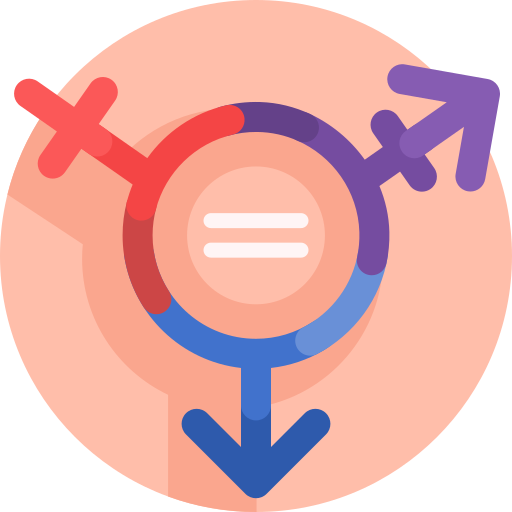Did you know women leaders are leaving their companies at the highest rate in years?
Despite any gendered views on leadership, companies with women in leadership positions perform much better than companies exclusively led by men.
Even if you're just starting your career or got your first job for pocket money, you can inspire your company to create policies that break barriers for women to succeed.
But how do you identify the ways women are held back by gender inequality at your workplace?
 Image source: Freepik
Image source: Freepik
What are the United Nations Women’s Empowerment Principles (WEPs)?
The UN has created a list of guiding principles to help organizations take real action toward gender equality.
 Image source: Freepik
Image source: Freepik
Here are the 7 categories identified by the UN to effectively begin measuring women's success in the workplace:

Leadership
Gender equality starts with leadership. The CEO and other corporate leadership team members must create goals to enable gender equality across the organization.
Example: Initiate company-wide development of company policies that acknowledge discrimination of women.

Respect
Create equitable company policies that treat all women and men fairly at work without discrimination.
Example: Support employees' access to childcare.

Health & Safety
Promote employee health, well-being, and safety by acknowledging how women are disproportionately affected by violence.
Example: Improve the company's complaint process to ensure due process during harassment claims.

Upward Mobility
Create opportunities for women to increase their salaries and receive promotions.
Example: Provide education and training for career advancement.

Business Development
Implement women's empowerment throughout enterprise development, supply chain management, and marketing practices.
Example: Partner with more woman-owned businesses, including small businesses.

Community Building
Invest in women's success in the community through program initiatives and advocacy.
Example: Work with community leaders to improve gender equality.

Progress Tracking
Measure and report on the objectives of all gender equality initiatives to create benchmarks for success.
Example: Publicly announcing the company's goals to hold the organization accountable.
What does success looks like? 🙌
We can also learn best practices from companies that have had great success implementing the UN's WEPs.
Open Career Call 📣
An international insurance company in Georgia ran an open call to hire women for training and a career in sales — no experience required!
Over 700 candidates were hired during campaign. Since the launch, they've achieved cultural transformation, a 50% increase in sales, and doubled employee retention rates.
 Image Source: Freepik
Image Source: Freepik
 Image source: Freepik
Image source: Freepik
Action on Domestic Violence 🏘️
A cosmetics company headquartered in Costa Rica developed enhanced procedures to prevent, identify, and reference cases of violence against women among their employees. They've also launched external campaigns to call for an end to violence against women.
 Image source: Freepik
Image source: Freepik
Equal Pay Measures 🤝
A global industry association noticed they were calculating women's salary offers based on their previous salary.
Knowing women are typically underpaid, they knew they needed to make a change. Now when interviewing a new candidate, the company asks for salary expectations and refers to the market standard to make their offer!
To read more success stories, you can download the UN's WEPs brochure. 👈
Where do you find company information on gender equality?
Whether you're in the service industry, trades, or technology, there are a few initial metrics you can look at to see if there are significant gaps in your workplace.
Review the employee chart.
You can start by looking at how women are represented at your company. Go to the company's corporate website or ask for internal publications to find out the following data:

Percentage (%) of women employees

Percentage (%) of women at the management level

Percentage (%) of women on boards/executive teams/partners
Why are these numbers important to measure? Watch this video to find out. 👇
How do you identify areas of improvement?
 Image Source: Freepik
Image Source: Freepik
Hiring more women isn't enough to tackle gender parity. New and existing employees need the right environment to accommodate their family life, work style, and professional development.
This is especially true for women who often manage child care and impostor syndrome on top of their job duties.
 Here are some questions that you can use to start a conversation with your employer:
Here are some questions that you can use to start a conversation with your employer:
Leadership
Do you support employees who go on maternity leave?
Respect
How do you ensure equal pay, benefits, and a living wage for all employees?
Health & Safety
What improvements can be made to ensure a more confidential and safe complaint procedure for violence and sexual harassment?
Upward Mobility
Can you provide more networking opportunities and mentor programs that cater to the schedule of a primary caregiver?
Business Development
Are there woman-owned businesses that you can partner with in our supply chain?
Community Building
Are there local women's groups you can partner with to advance gender equality?
Progress Tracking
What benchmarks can be set in order to measure your success in an annual report?
Quiz
What answers below indicate your company is taking action on the seven UN Women's Empowerment Principles? Select all that apply.
Take Action

There are so many ways you can promote women's empowerment in the workplace:
Your feedback matters to us.
This Byte helped me better understand the topic.
